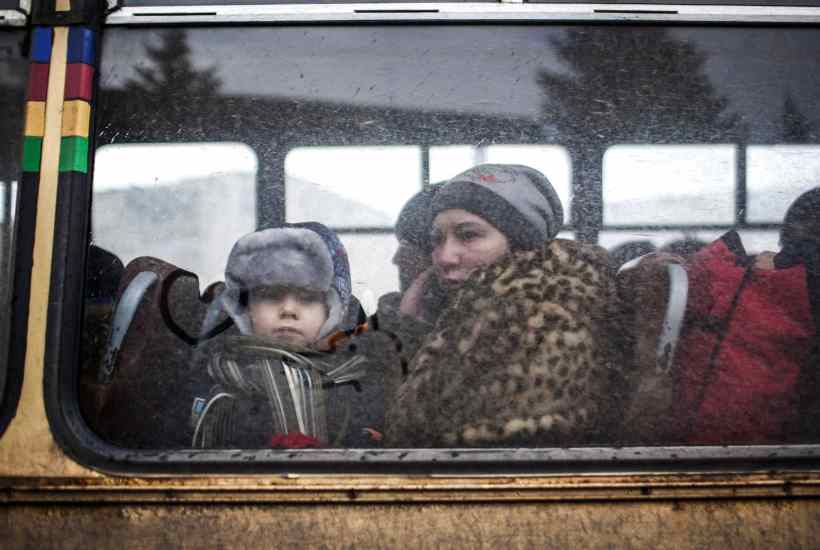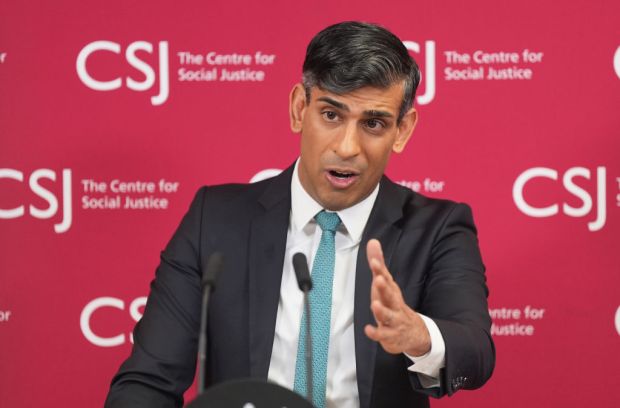Immigration used to be the most-discussed issue in British politics. It gets less attention these days, for reasons too varied to go into here. But even though some voters have been focused on other things, there have been significant changes. Some have been good. Others bad. And the bad ones are about to collide with the Ukrainian crisis.
The positive bits of the immigration story have mainly been around regulated, economically-driven migration. Britain’s post-EU migration regime is, well, not as bad as it could have been. It’s not as easy as it was for EU nationals to come here to work, but it’s a bit easier for non-EU nationals to enter. The overall effect has been less a tightening of entry rules than a rebalancing. The pandemic is obviously clouding the data here, but — though they rarely say so openly — ministers appear to have no intention of doing anything that significantly reduces overall migration levels to the UK.
The public has been content with this and also content for several million EU nationals already in the UK to settle here. Likewise, there has been a pretty generous offer to settle Hong Kong residents: Britain has effectively given five million Hong Kongers a pathway to settle here — and voters haven’t blinked. As someone who has long taken a liberal position on immigration issues, this is all fairly cheering. It certainly disproves the doom-laden predictions made by some of my fellow Remain voters that Brexit would make Britain hostile to immigration and immigrants. As long as they’re regular migrants, moving for formally economic reasons, Britain has been fair and receptive.
The negative bits of the immigration story are around the other routes people follow to reach the UK. When it comes to irregular migration (boats in the Channel), asylum and refugees, policy and public debate has got worse. I sometimes wonder if this is deliberate — does a government that is being quietly liberal on regular migration actively want to be seen as harsh on irregular migration in order to reassure voters who are still motivated by concerns over immigration?
Whatever the motivation, political debate about asylum, refugees and irregular migration is becoming nastier and more polarised. Priti Patel has become a hate figure for many on the migrant rights side of the debate, where some people seem to have given up on trying to influence bad government policy in preference for starkly denouncing it.
There is movement on the government side of this issue, and not in a good way. Conservative opinion on asylum has been moving towards something harsher and more unpleasant.
Not long before the Ukraine crisis exploded, the think tank Policy Exchange published its latest paper on asylum and Channel Crossings. Policy Exchange is a serious organisation with standing in Conservative circles and strong connections in government. The ideas and arguments it develops help shape norms in Conservative circles.
So its paper, ‘Stopping the Small Boats: a Plan B’, deserves some attention, especially in light of events in Ukraine. Because its authors, respected members of the Conservative family, argue that in some circumstances, Britain should not admit or settle even genuine refugees. Genuine refugees would be resettled in a safe state other than the UK. No person entering (or attempting to enter) the UK on a small boat from a safe country would be allowed to settle in the UK, even if a genuine refugee. According to Policy Exchange, the UK’s policy should be that:
No one, even a genuine refugee, who chooses to arrive or attempt to arrive unlawfully in the UK by small boat from a safe country like France will ever be granted a right to settle in the UK.
In the event that someone reached the UK by that route and was then found by the UK authorities to be a genuine refugee — fleeing terror or persecution elsewhere — Policy Exchange says that person should still be deported to a safe third country. There are, they suggest, ‘exceptional circumstances’ in which a legitimate refugee should be allowed to settle in the UK. But for most genuine refugees, Policy Exchange suggests that they be sent to ‘a third state which has agreed with the UK to accept refugees deported from UK waters (or the UK)’.
Now, it is possible that I’m inclined to impute too much influence to think tanks (I run one) but I think this stuff is very significant. Papers like this one help MPs, journalists and others decide what’s normal and acceptable in politics and policy. When an outfit like Policy Exchange says that it’s OK for the UK to deport genuine refugees, the window of respectable opinion shifts.
So that paper troubled me when I read it earlier this month. Is that really a direction that the Conservative party might want to take? Even in all the long years of Conservative anxiety about migration and ‘bogus asylum seekers’, there was an acceptance that Britain should always remain welcoming to those who came here in genuine need. But was that just another convention from an earlier age, to be tossed aside with all the others onto the post-Brexit bonfire of Tory respect for institutions and rules?
And this brings us back to Ukraine. A refugee crisis is coming. Britain faces a choice: open the door to any Ukrainian who needs safe haven or restrict the entry of people fleeing war? My suspicion is that early polls will prove accurate and a strong majority of voters will want to open that door, though a non-trivial minority will have doubts.
Which side of that choice will Conservatives come down on? I very much hope that it is the former, and not just because of the need to help those Ukrainians in need. For one of the mainstream parties of British politics to choose the path laid out by that Policy Exchange report — seeking to close Britain even to genuine refugees — would be a truly grim development.
I am not a Conservative, but I have many friends who are. After 25 years at Westminster, I believe that there is as much decency and compassion on these issues to be found among Conservatives as in any other party or group, though that is sometimes harder to see from afar. It is time for decent and compassionate Conservatives to speak up, for a big, generous offer to admit any Ukrainians who want to come to Britain.
The Ukraine crisis offers Conservatives a chance not just to do the right thing, but to prevent their party, and politics, from drifting into dark and dangerous waters.
Got something to add? Join the discussion and comment below.
Get 10 issues for just $10
Subscribe to The Spectator Australia today for the next 10 magazine issues, plus full online access, for just $10.



















Comments
Don't miss out
Join the conversation with other Spectator Australia readers. Subscribe to leave a comment.
SUBSCRIBEAlready a subscriber? Log in